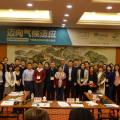Chinese cities exploring resilience approaches to navigate sustainable development
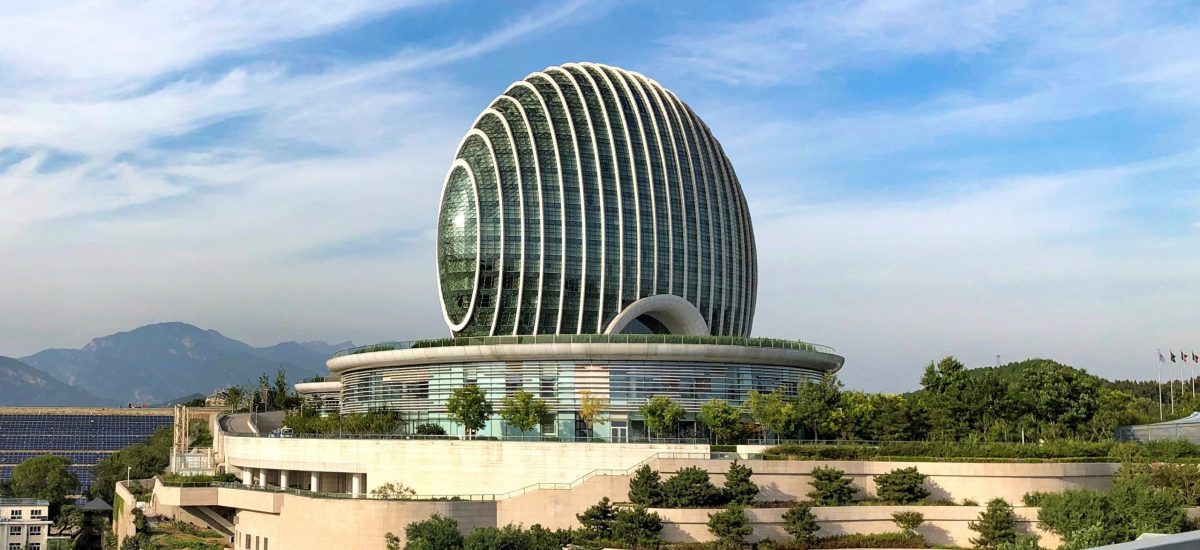
In April 2021, ICLEI East Asia delivered the two-day training workshops on resilient cities and disaster risk reduction (DRR) capacity building to the local governments of Shanghai Changning District and Beijing, China respectively. A total of more than 50 representatives from the departments of emergency management, ecology and environment, climate change, spatial planning, and multiple sub-district offices under the two local governments participated in the training. With the support of experts from multi-disciplinary backgrounds, participants of the two workshops applied UNDRR’s Ten Essentials for Making Cities Resilient scorecard, and conducted the city/district’s respective preliminary assessment on its current status in DRR and resilience development.
As two of the most developed mega cities with dense populations in China, both Shanghai and Beijing are facing various risks and challenges brought by frequent population mobility, growing numbers of residents, rapid and large-scale urbanization, and climate change. Participants brought the local context such as community/sub-district governance and local practices into discussions.
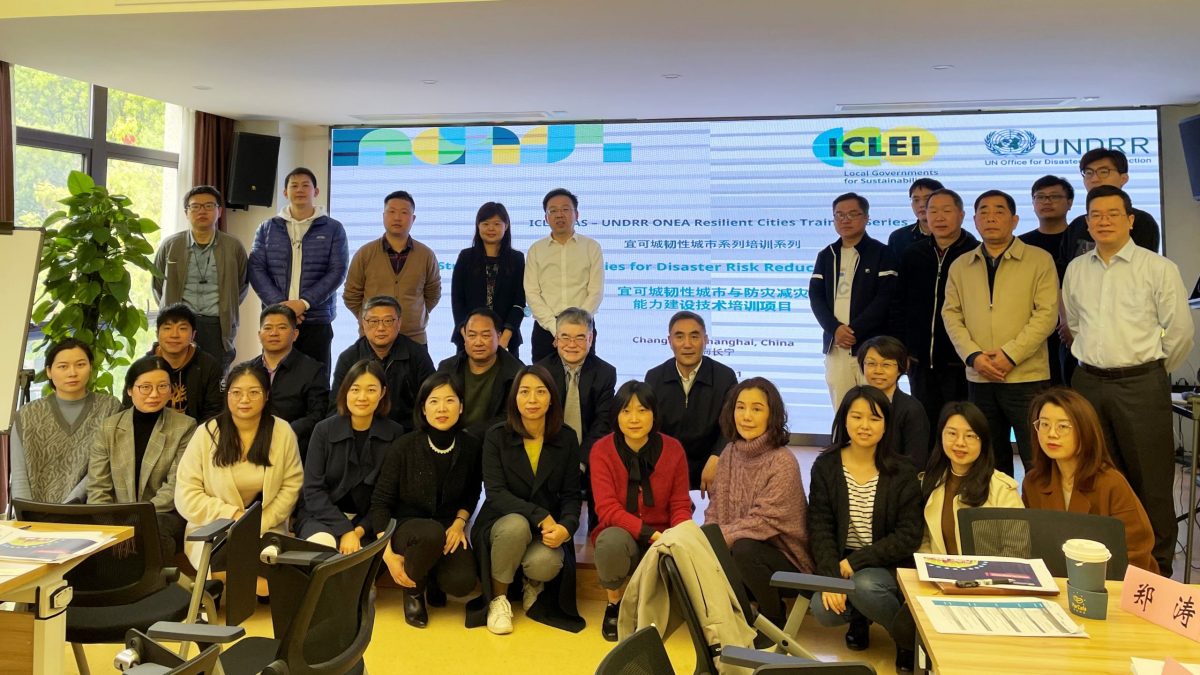
Training workshop held in Shanghai Changning District / Photo: ICLEI
With the governance of the Suzhou River and the “All in One Net” for public service delivery as examples, participants from Shanghai Changning District shared the district’s experience in strengthening its urban planning, environmental monitoring, and governance, big data platforms use capacities, and how these experiences have contributed to the making of resilient cities. The two heavy precipitation events in 2012 and 2016 in the Beijing area, on the other hand, provided valuable comparative information on the city’s improvement in infrastructure, and emergency and flood management. Furthermore, the discussion on the transformation of transboundary river governance allowed participants to further understand and analyze the approaches and current status of trans-regional, cross-departmental collaboration.
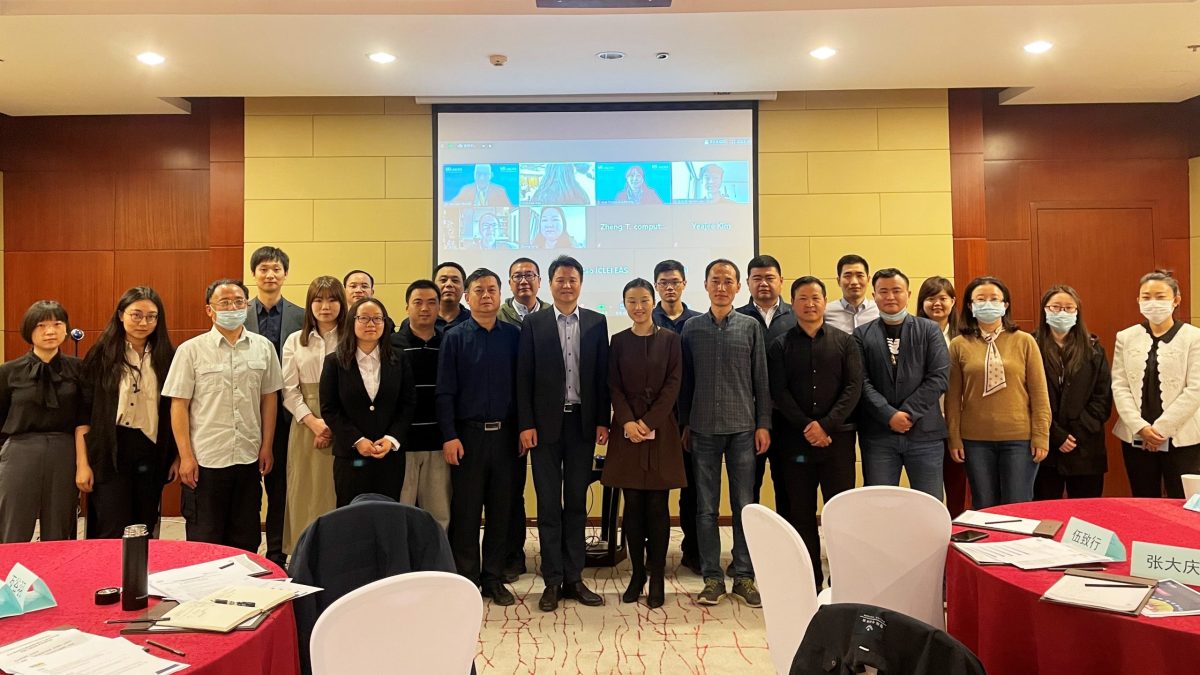
Training workshop held in Beijing / Photo: ICLEI
In addition, representatives from both training workshops all agreed that the global pandemic has provided not only an opportunity for their city/district to carry out a full inspection of their preparedness for public health emergencies – including responses to major infectious diseases outbreak, but also a valuable and concrete reference for further discussions and assessments on organizational coordination, critical infrastructures, emergency response measures, as well as resilience-related planning.
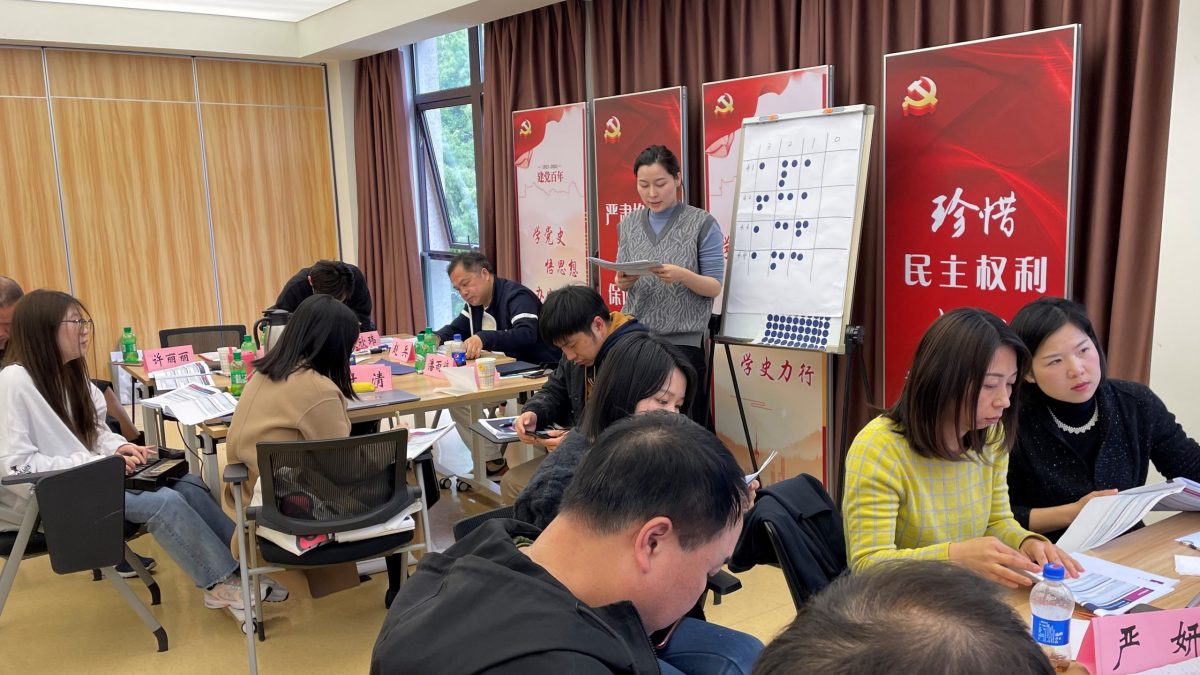
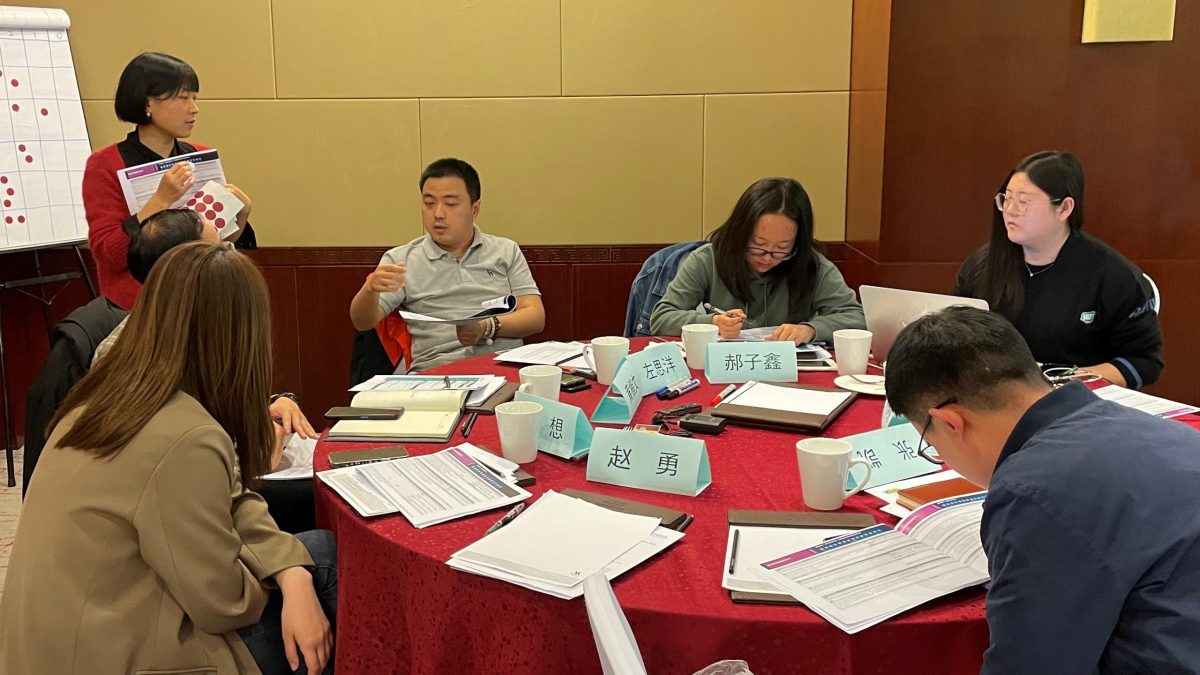
Workshop participants engaged in group discussions (left: Shanghai Changning workshop; right: Beijing workshop / Photo: ICLEI
A number of experts were also invited to share cutting-edge research and practical experiences on resilience from home and abroad, allowing the participants to further their knowledge on resilience and DRR from cross-disciplinary and multi-dimensional perspectives. Dr. Wuxiao Teng, Director of the Urban Public Security Research Center at Fudan University, introduced the mechanism of disaster and its interconnection with socio-economic context. He stressed the need for communities to reduce their exposure to risks, and enhance their resilience and capacities to adapt to adverse events. Communities should therefore be the center of implementing resilience and emergency response systems.
Prof. Yinlong Xu of the Chinese Academy of Agricultural Sciences and Prof. Yan Zheng of the Institute of Ecological Civilization at the Chinese Academy of Social Sciences presented climate adaptation policy frameworks in China and other countries, as well as a number of outstanding urban resilience planning and practices, from the perspective of climate adaptation and resilience building.
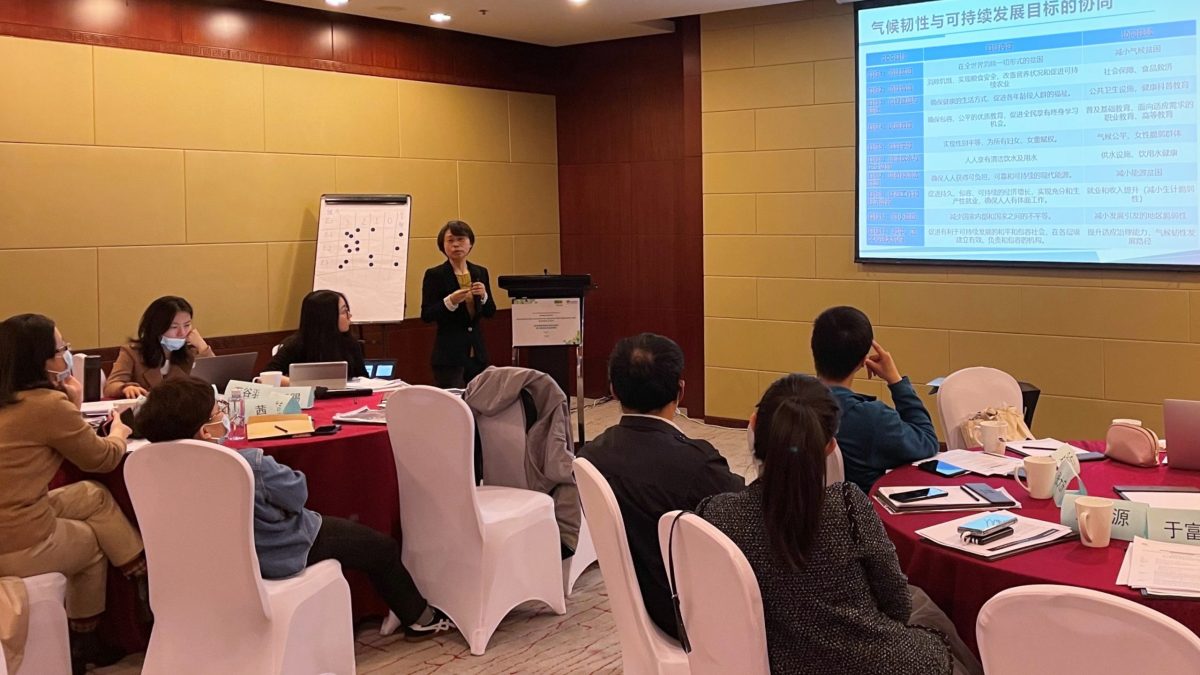

Prof. Yan Zheng (left) and Prof. Yinlong Xu doing presentation / Photo: ICLEI
As for front-end planning like urban and territorial design, Dr. Stanley Yip from the Urban Planning Design Center of Peking University, and Prof. Nian She from Tsinghua University Innovation Centre in Zhuhai both agreed that resilience planning is vitally important for cities in enhancing their DRR and climate adaptation capacities. Dr. Dan Zhao from the Beijing Municipal Institute of City Planning and Design (BICP), shared the work of Resilience Planning under the Beijing City Master Plan (2016-2035), including the existing data, information, and action plans.
After the two workshops, ICLEI also held a wrap-up session for the “Make Cities Resilient 2030” Campaign in Beijing on 23 April. Through both online and offline participation, representatives from the 4 Chinese cities and experts in relevant fields who have engaged in the training series, were invited for a final round of deliberation and experience sharing, bringing the program to a successful conclusion.
During the session, representatives from each city presented the current progress of their works in DRR and resilience. Qian Liu, Director of the Climate Change and International Cooperation Department of Chengdu Ecological Environment Bureau, introduced the city’s ongoing forest carbon sink, integrated urban management corridor and future carbon neutral action plan; Qin Mao, Deputy Director of the Urban Renewal and Low Carbon Project Management Center of Shanghai Changning District, shared that corresponding resilience elements, such as adding electric vehicle charging piles in residential areas and creating habitat gardens which would help enhance urban biodiversity, are being considered in the district’s future work. Dr. Jing Gao from the Center for Climate Change Research of Beijing Municipal Bureau of Ecology and Environment introduced the city’s current forestry carbon sequestration projects that combine urban forestry and climate actions; and Bo Zheng of the People’s Insurance Company of China shared how insurance systems – catastrophe insurance in particular – have been utilized as a powerful economic tool in post-disaster response and relief operations in Ningbo.
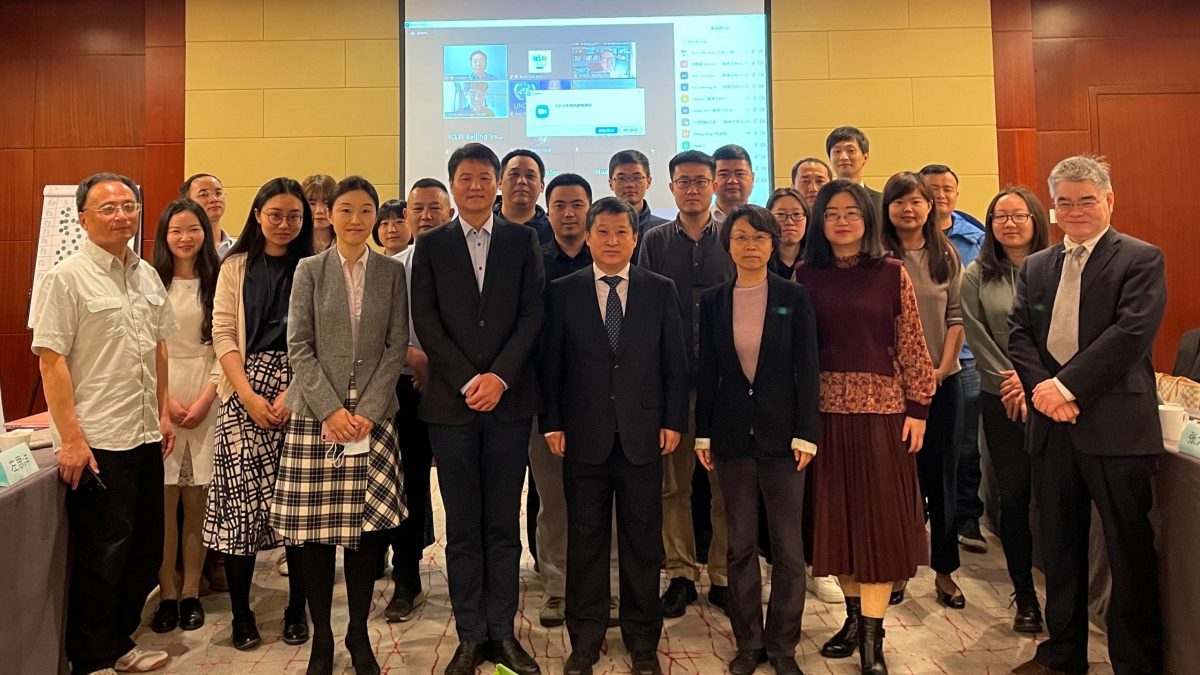
Wrap-up session held in Beijing / Photo: ICLEI
“The building and realization of resilient cities require cross-sectoral and multi-stakeholder participation,” said Shu Zhu, Director of the ICLEI East Asia Secretariat and Chief Representative of China, in the concluding remarks. He emphasized that the first task for cities pursuing better resilience capacity is to develop a new understanding of urban development from a resilience perspective which highlights livability and sustainability. Next, local authorities will also need to adjust their governance models, as well as financial and resource ratios, and make specific and targeted capacity-building and enhancement with the support of suitable resources and technologies. Finally, the implementation of governance policies requires cities to continue exploring new frameworks and models, so as to respond to emerging issues in urban development and to meet the needs of climate adaptation.
ICLEI East Asia is with great pleasure to have been working with the United Nations Office for Disaster Risk Reduction for Northeast Asia and Global Education and Training Institute (UNDRR ONEA-GETI) over the past years, together with supporting several Chinese cities in assessing their status in DRR and resilience development and formulating transformative strategies accordingly. In addition, ICLEI also highly appreciates the endorsement of the training workshops from the Urban Renewal and Low Carbon Project Management Center of Shanghai Changning District and the Foreign Affairs Office of the People’s Government of Beijing Municipality. As an organization with a long-term focus on urban resilience and sustainable development, ICLEI East Asia will continue to provide Chinese and other East Asian cities with opportunities and platforms for information exchange and knowledge sharing and support local governments in piloting the construction of resilient cities.


